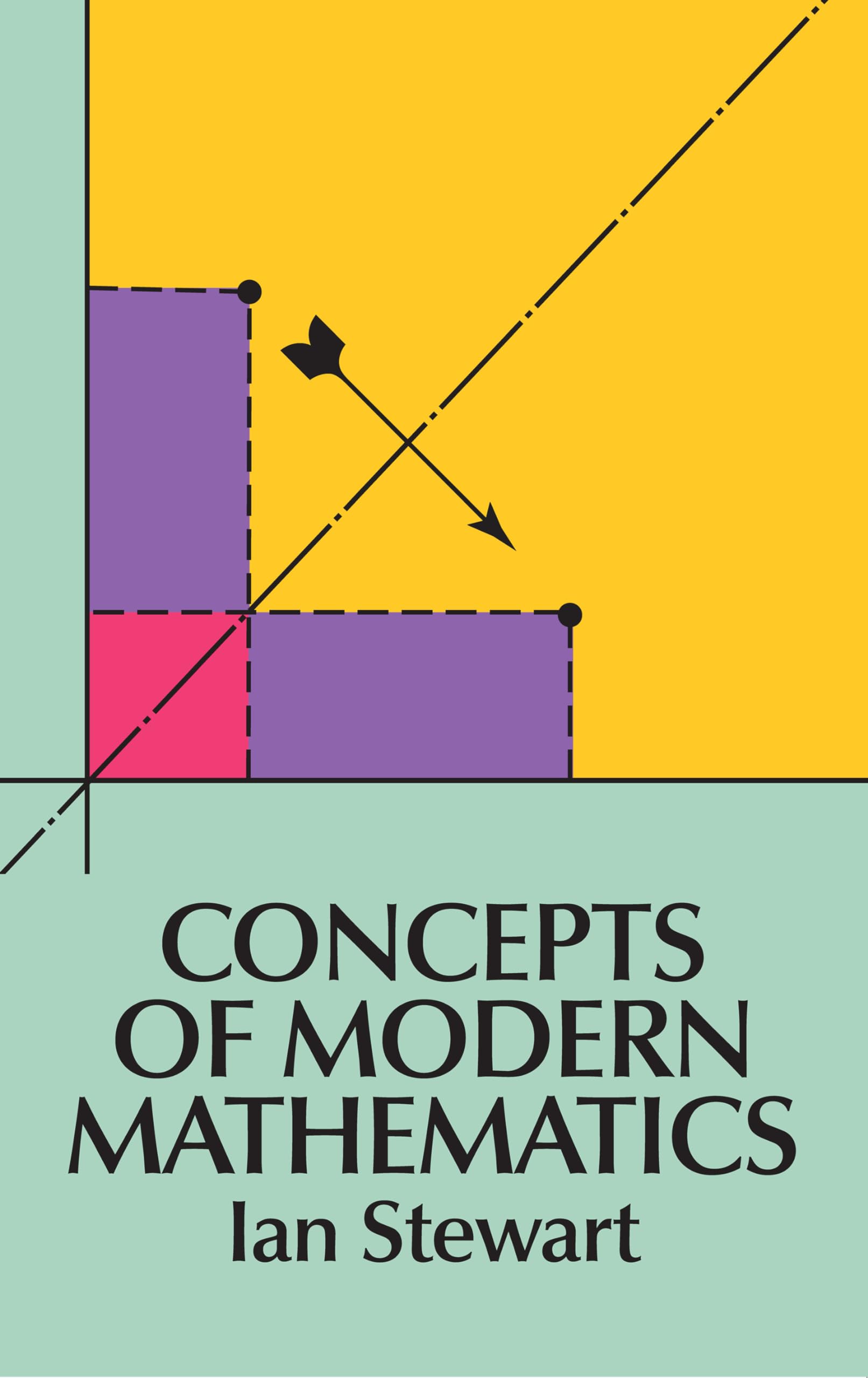


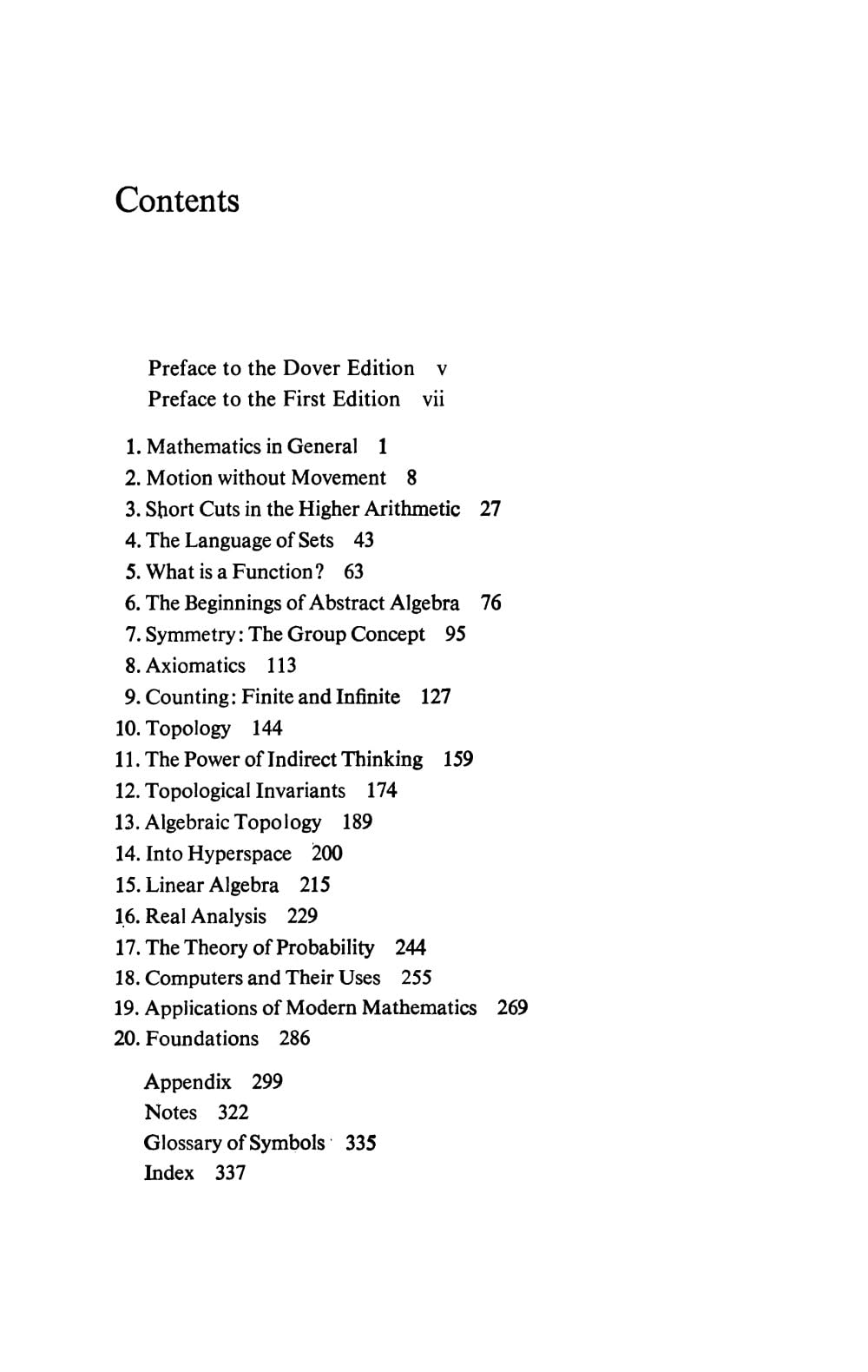
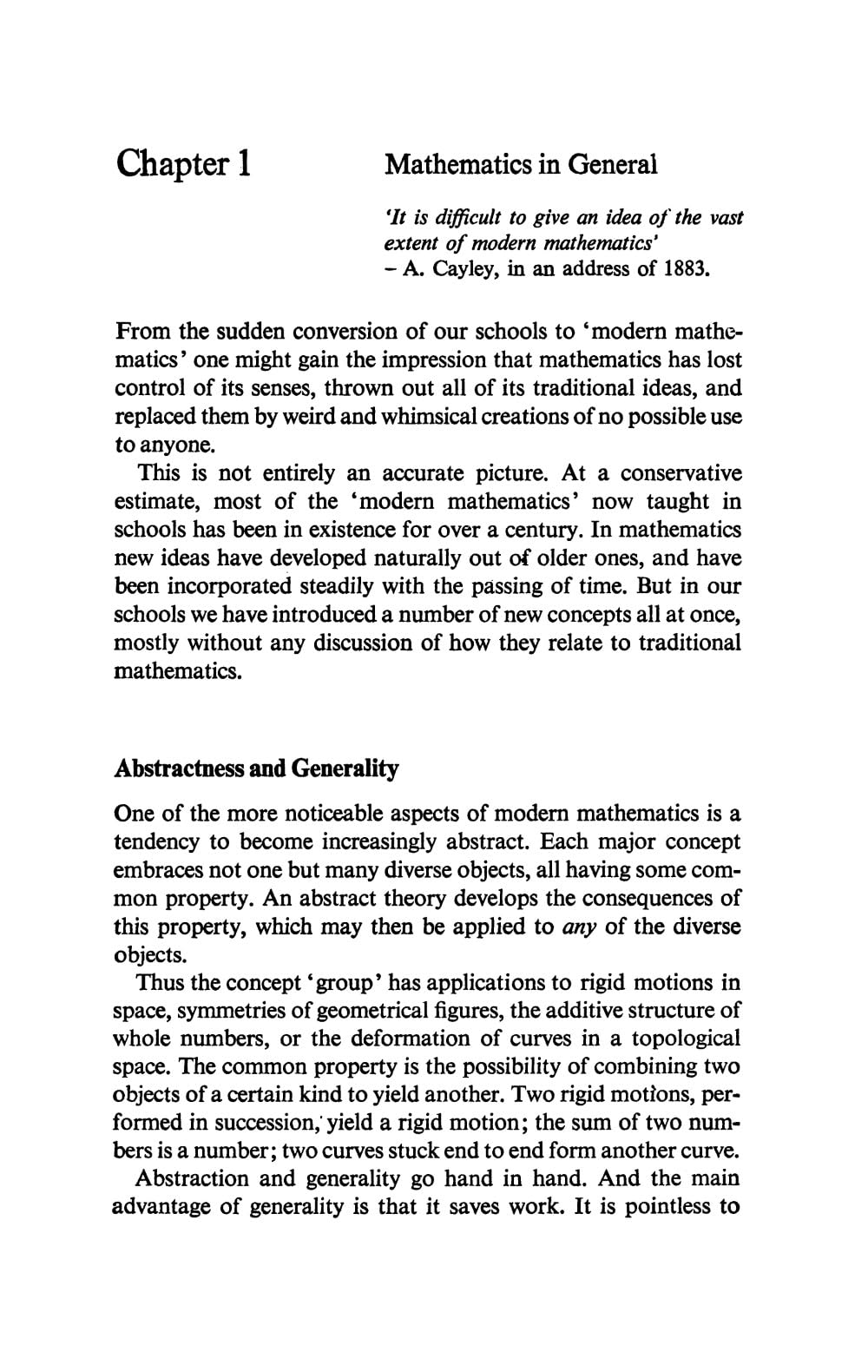
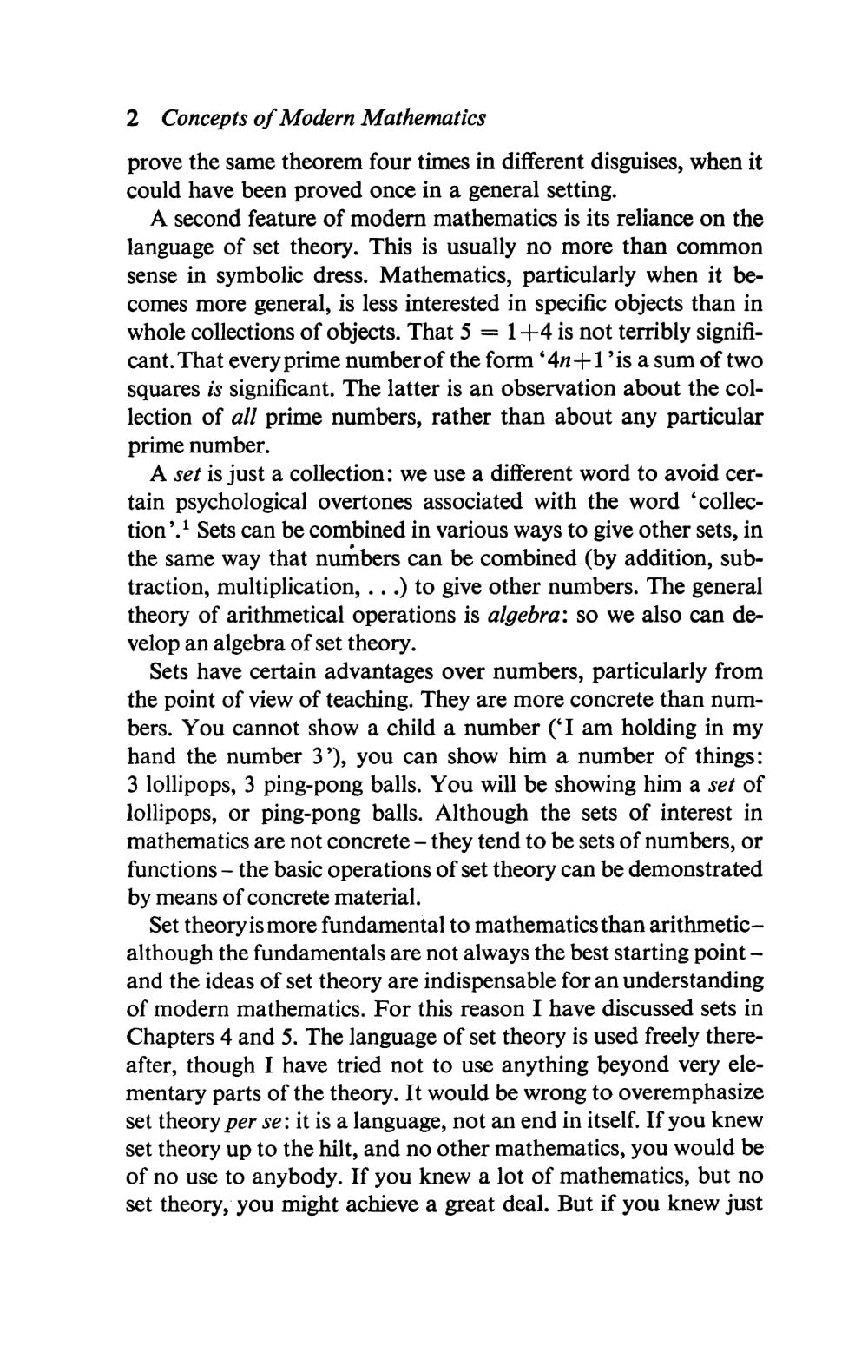
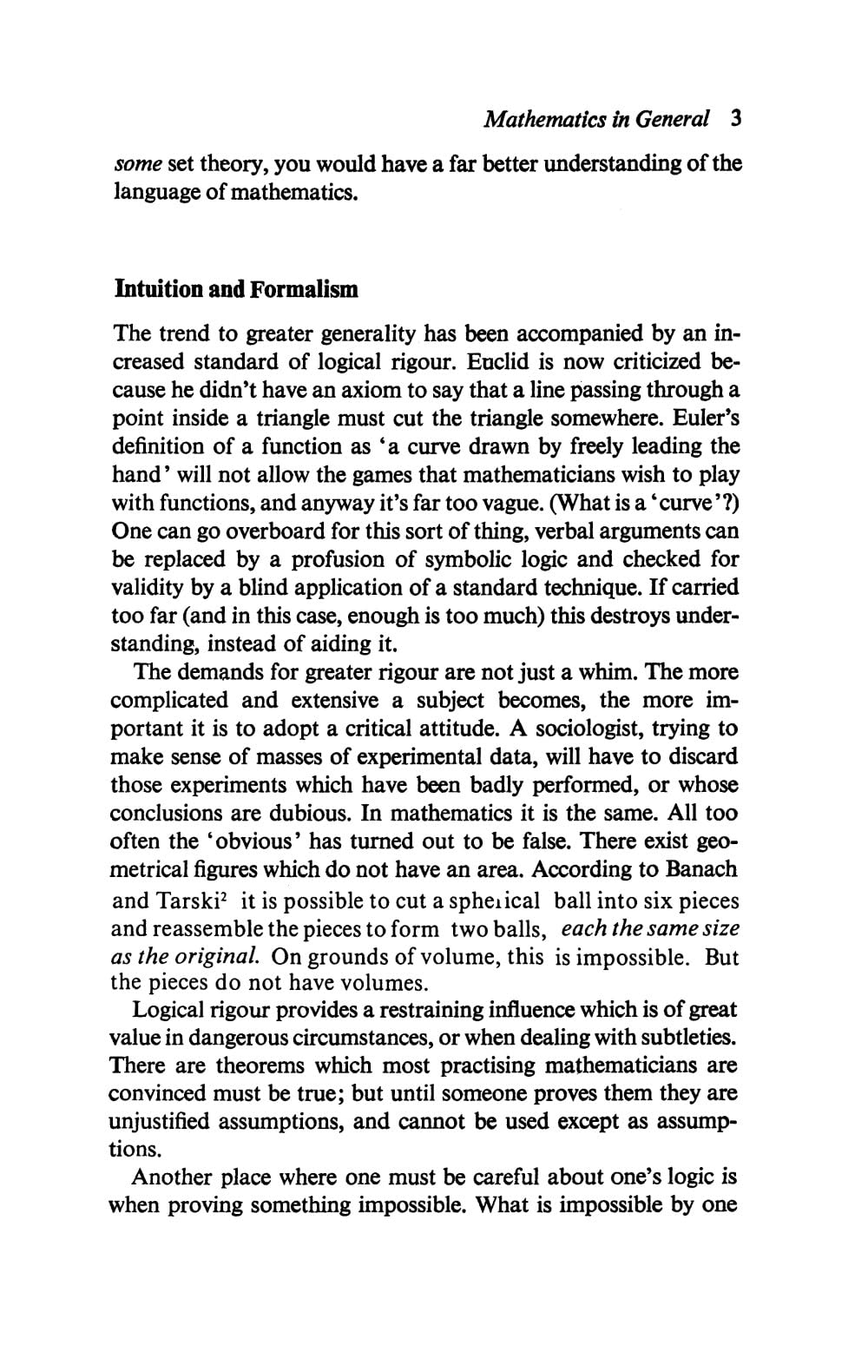
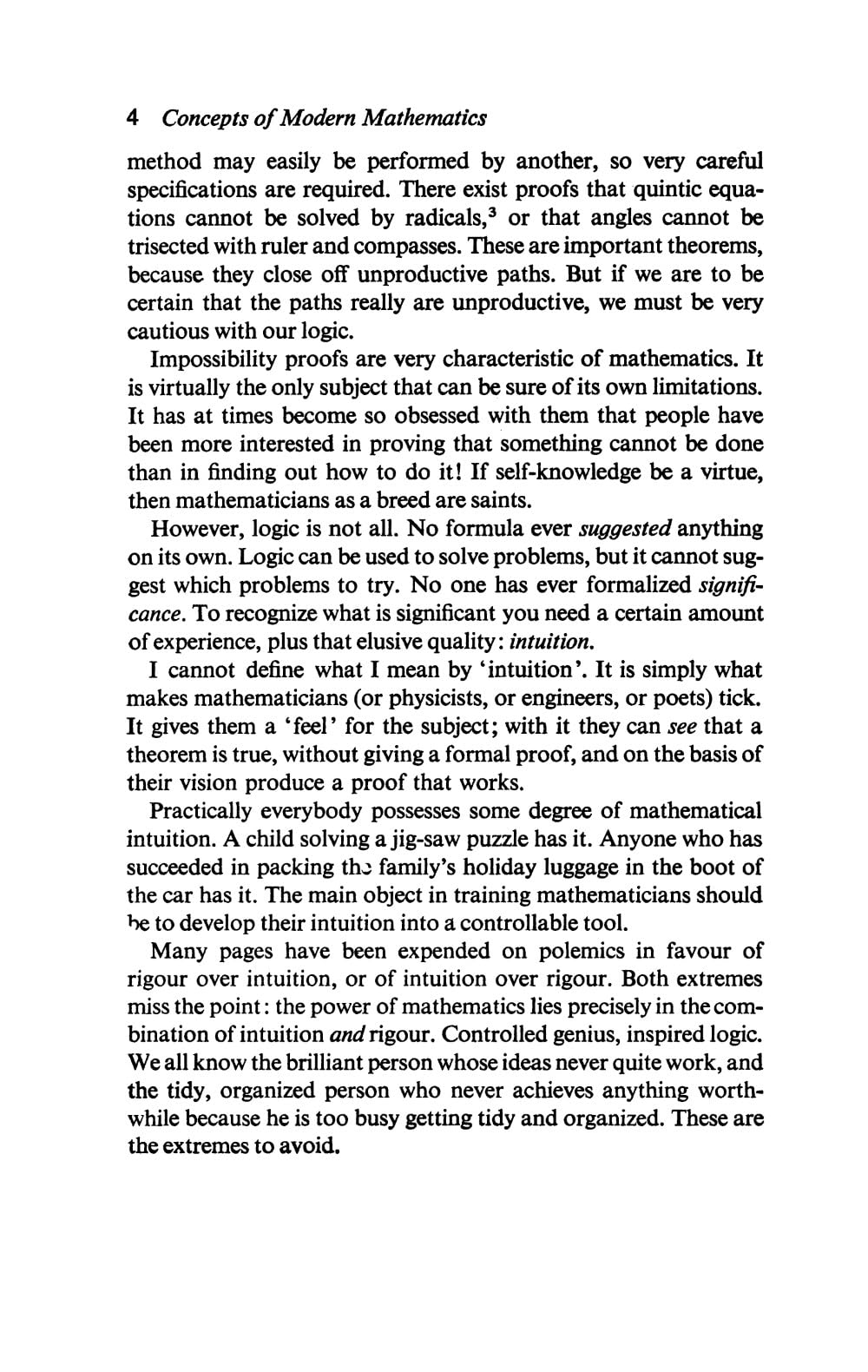
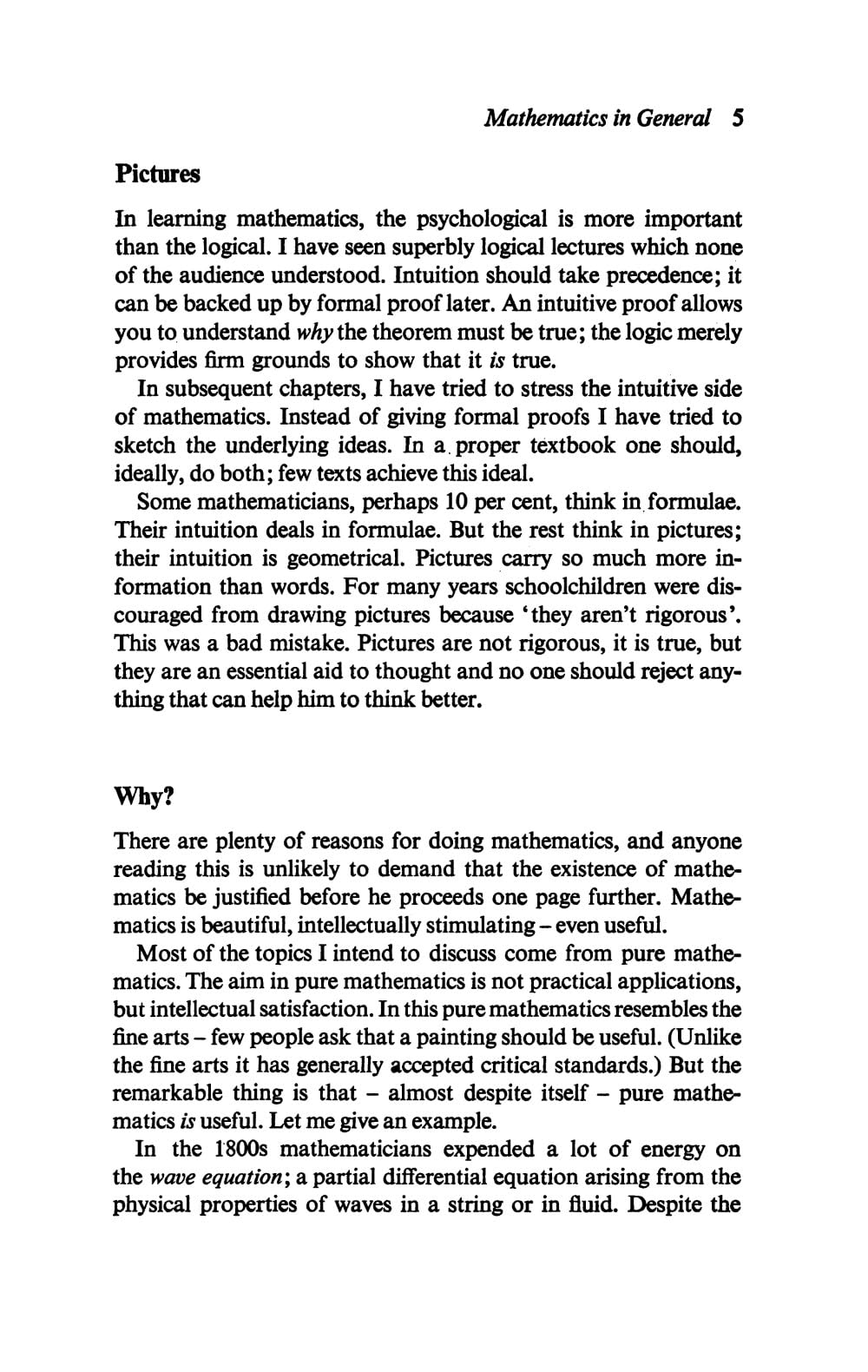
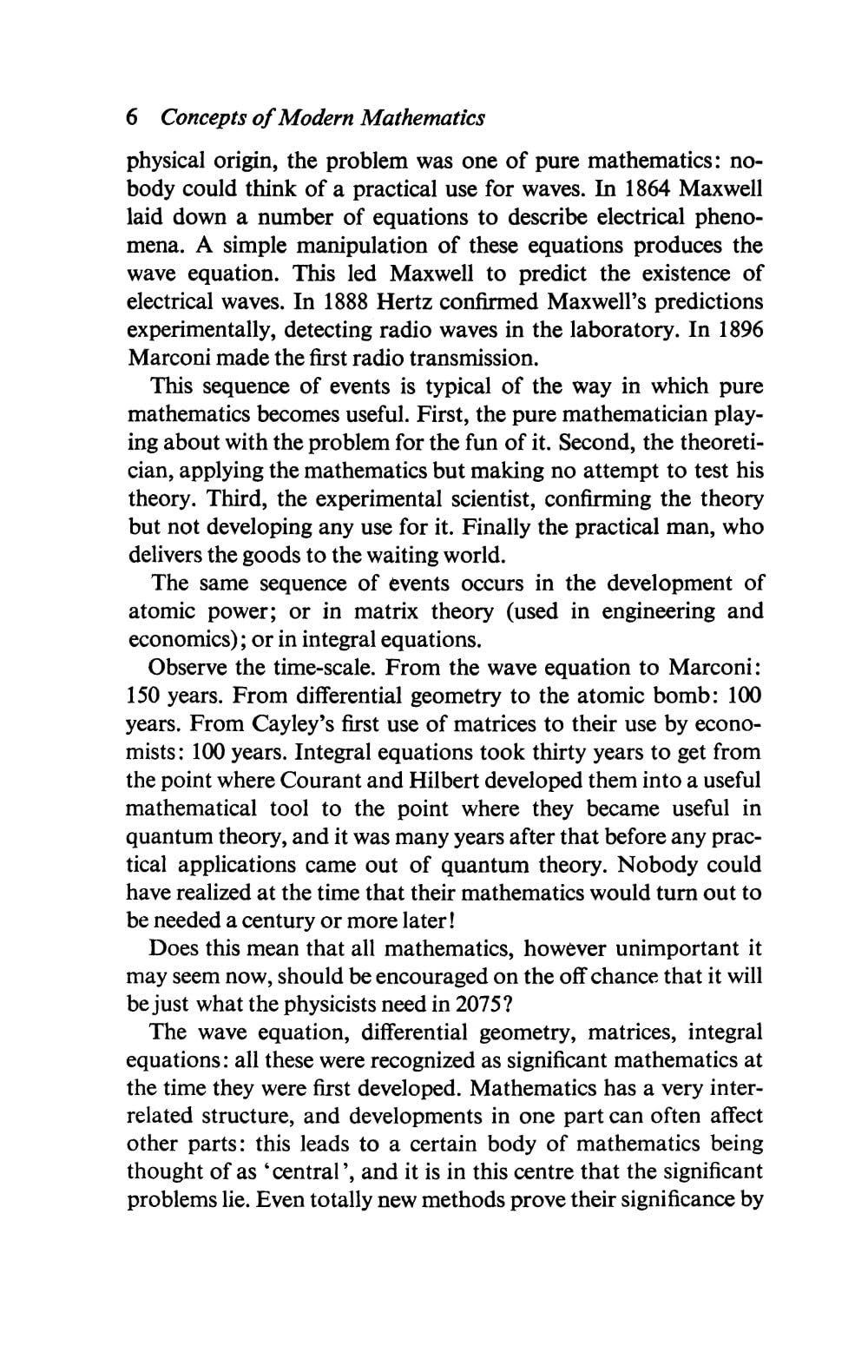
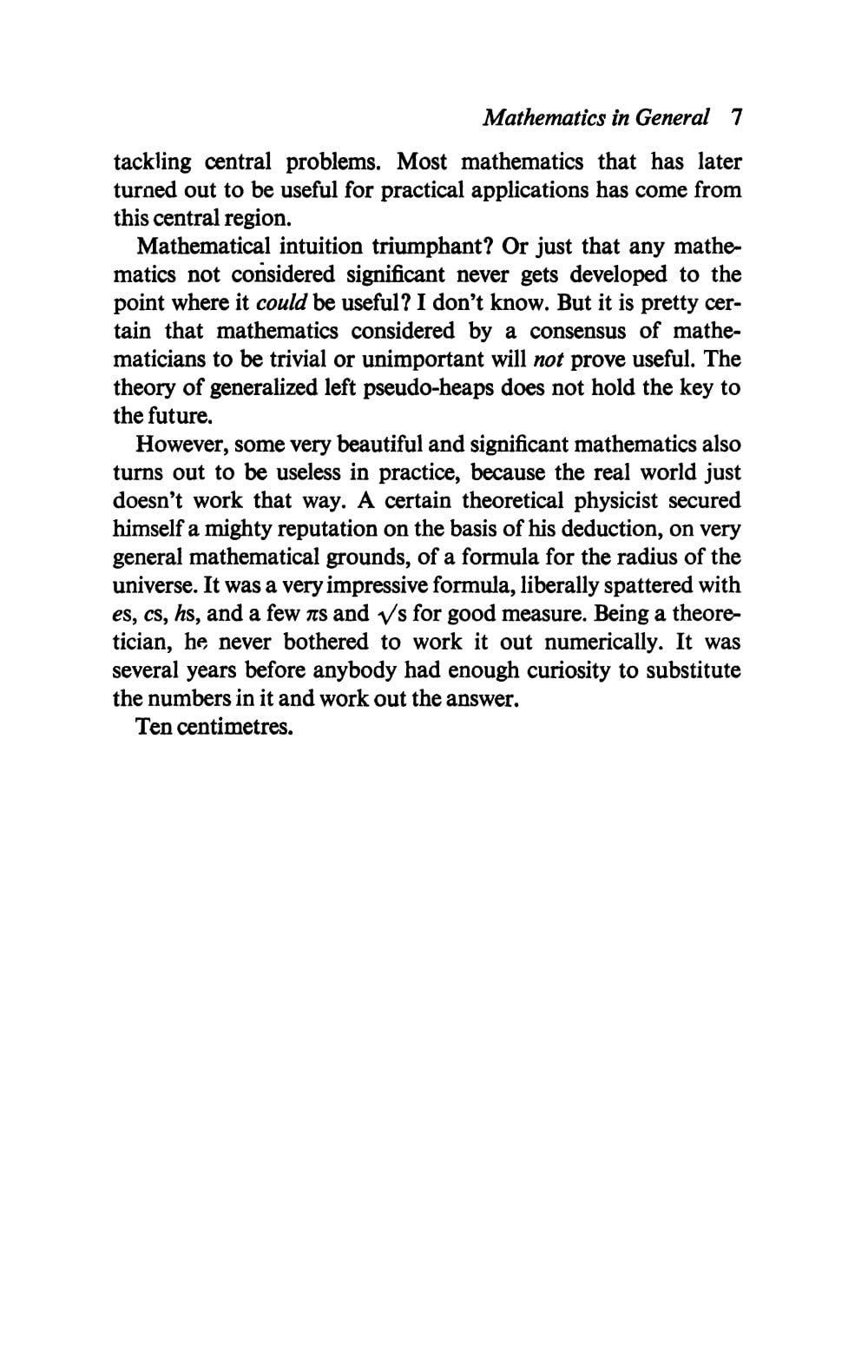
Full description not available
C**N
What did Professor Stewart say?
My review joins the chorus of praise for Dr. Stewart's Concepts of Modern Mathematics ("Concepts"). It has been many years since I put down my slide rule and picked up my math diploma. I wanted a refresher and turned to Concepts for help. Its stated purpose is to spread the concepts underlying the "New Math" to a non-specialized audience. Concepts was the perfect choice.Concepts is organized into twenty short chapters. Dr. Stewart's writing style is informal, enthusiastic, and conversational with a spot of humor. He stresses the primacy of intuition, the role of experimentation in proving utility and the need for rigor when complexity multiplies. In mixing these factors, Dr. Stewart reveals glimpses of how a mathematician works. Abstract algebra, topology and analysis are the "cornerstones" of modern mathematics. The first nine chapters are devoted to an introduction and to teaching axiomatic set-theory at the heart of the "New Math". As Dr. Stewart quips, to study French literature, one must know the French language. Topology is covered in four chapters, real analysis in only one, and applications in five.Dr. Stewart employs his "toolkit" of "...aims, methods, problems and applications..." to illuminate an imposing intellectual structure. For example, complex numbers and infinite sets can cloud the brightest minds. Wielding his tools skillfully, Dr. Stewart demystifies complex numbers by recasting as modular arithmetic and makes cardinals plausible using bijections with natural numbers.Sadly, "Foundations", the final chapter, casts doubt on the reliability of modern mathematics. Dr. Stewart visualizes mathematics as an inverted pyramid balancing precariously on only a few assumptions that cannot be confirmed. The chapter includes outlines of Godels famous theorems and Dr. Stewart's opinion that "...it proves the impossibility of an arithmetical proof of the consistency of arithmetic". The remedy, says Dr. Stewart, is to trust theorems that should be true and to hope for logic that someday fulfills its promise. Finally, Concepts is just the beginning of a "hard technical grind" for the serious student.
A**A
Excellent and interesting overview of modern mathematics
Ian Stewart's "Concepts of Modern Mathematics" is the best general book that I have read about mathematics. The writing is interesting and clear and reading the book is a pleasure. Stewart walks the reader through the major breakthroughs of mathematics in the last two hundred years by explaining things from a fundamental viewpoint. Ideas are developed with examples, then made general by abstraction, and finally used to prove interesting ideas about the topic.For example, in the section on axiomatics, he starts with Euclid's axioms and the question "Is Euclid's sixth axiom really necessary?". Then he explains what consistency means in the case of axioms, and finally builds an explanation to show that Euclid was right after all.If all of this sounds complicated, esoteric, or technical, you should know that it's not. Stewart goes through each idea slowly and with plenty of explanation so that the reader understands ideas as they come. As a math major in college, a lot of the ideas I already knew, but it was still interesting to go over them again and see things I never covered before, like algebraic topology and graph theory. I would recommend this book to anyone who is interested in mathematics or science.
V**R
A layman's guide to the basic branches of mathematics
What is mathematics about? We all learn math in grade school and high school, but that's just arithmetic and very basic algebra, with a dash of set theory, logic, geometry and trigonometry. In this book, Ian Stewart goes over the main branches of mathematics and these go far beyond what we learn in school.He touches on topics such as abstract algebra, real analysis, topology, logic, axiomatics, and geometry. He explains what groups, rings, and fields are; he explains what continuity is, what functions are, and what counting is.My favorite section of the book comes at the end of the chapter introducing abstract algebra where Stewart presents a proof that a game of solitaire, where the goal is to eliminate pegs from a board until you are left with one in the center, has only a certain number of possible solutions. Here, Stewart does an excellent job of explaining enough of the topic to allow us to follow through a simple and convincing proof of something pretty interesting.Apart from that, it's not a bad book by any means but it should have been better. For instance, in the opening paragraph of this review, I wrote "just arithmetic and very basic algebra". Just arithmetic. Think about it: it's amazing that today, everyone can count, can add and multiply, can divide. We all understand percentages, we can all do very basic algebra in our heads. (What's x in 4+x=5?) Shouldn't we feel a sense of wonder at this?In general Stewart's bird's eye view of mathematics today left me... I'm at a loss for words here, so I'll just say it left me.Vincent Poirier, Tokyo
A**N
A must read for all math undergrads!
Beautiful written. Professor Ian Stewart makes the difficult easy to absorb and comprehend. His humor and engaging style makes reading mathematics delightful. I truly could not put the book down!
R**S
The math majesty in a grand parade of abstractions for layperson
We are in 1975, Ian is teasing us with bits of modern mathematics. He warms up remembering us that mathematicians are juggling concepts (instead of numbers) mostly for intellectual satisfaction. Impressive jugglers playing with axioms, functions, sets and so on. Everything connected together by powerful and enjoyable concepts from the "queen of the sciences". Here, we must put emphasis on enjoyable because our math majesty is introduced to layperson by a very good teacher. The whole thing is well illustrated with examples and plots in an engaging parade of abstractions; majestic indeed.
Trustpilot
2 days ago
3 days ago